English pig producers feel over-regulated
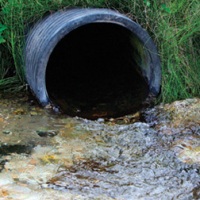
The difficulties – particularly the uncertainties – of living with Integrated Pollution Prevention and Control (IPPC) were outlined to the Environment select committee when it took oral evidence from the English pig industry this week.
Struggling to comply
Lincolnshire farmer John Godfrey explained how his large pig business was continually struggling to comply with new and changing regulations. IPPC, as interpreted in England, was an ever-shifting law which decreed pig farmers would be regulated in myriad ways as determined by the Environment Agency, said Godfrey.
All producers could do was wait for the Agency to visit and tell them what new requirements were to be made of them. “Even when regulations have been introduced they are changing all the time and we have no idea what we are supposed to do,” he said. “For instance, we knew IPPC was coming – but we don’t know, next year, what we are going to have to do to comply.”
NPA chairman Stewart Houston said there were “contradictions and overlaps” in the way the pig industry was regulated. There had been over-interpretation by Defra of what the European Union meant in its directives, and this was followed in turn by over-interpretation by the Environment Agency of what Defra meant, he said. He referred to the Environment Agency’s requirement that some producers bring ammonia emissions to below background levels. “It’s impossible to do.”
IPPC fee
Committee chairman Michael Jack noted Godfrey paid an IPPC fee of over £6,000 a unit for which he receives two inspections a year, telling what improvements are necessary. “Those improvements are costing us money and they are doing very little to help the environment,” replied Godfrey.
Nigel Penlington, of BPEX was asked to specify areas where continental competitors got an easier ride from regulators. “In the Netherlands they have funded relocation of farms, and equipment to remove odour from pig units, and in the past they helped farmers with slurry stores,” he said. “In Germany producers have help with biogas production and in Ireland producers are being paid for converting to loose housing. In France an aid package was introduced last year. I don’t think it had state aid clearance.”
Speaking for processors, Stuart Roberts, director of British Meat Processors Association, said in the past England had world-class, efficient pig production. “If you look at something like waste and the burning of tallow, a number of countries have looked at the intention of European law and allowed the burning of tallow. Perhaps when we are interpreting the law we need to look at the intention not just the wording.”
Click here for the free Pig Progress newsletter
Lincolnshire farmer John Godfrey explained how his large pig business was continually struggling to comply with new and changing regulations. IPPC, as interpreted in England, was an ever-shifting law which decreed pig farmers would be regulated in myriad ways as determined by the Environment Agency, said Godfrey.
All producers could do was wait for the Agency to visit and tell them what new requirements were to be made of them. “Even when regulations have been introduced they are changing all the time and we have no idea what we are supposed to do,” he said. “For instance, we knew IPPC was coming – but we don’t know, next year, what we are going to have to do to comply.”
NPA chairman Stewart Houston said there were “contradictions and overlaps” in the way the pig industry was regulated. There had been over-interpretation by Defra of what the European Union meant in its directives, and this was followed in turn by over-interpretation by the Environment Agency of what Defra meant, he said. He referred to the Environment Agency’s requirement that some producers bring ammonia emissions to below background levels. “It’s impossible to do.”
IPPC fee
Committee chairman Michael Jack noted Godfrey paid an IPPC fee of over £6,000 a unit for which he receives two inspections a year, telling what improvements are necessary. “Those improvements are costing us money and they are doing very little to help the environment,” replied Godfrey.
Nigel Penlington, of BPEX was asked to specify areas where continental competitors got an easier ride from regulators. “In the Netherlands they have funded relocation of farms, and equipment to remove odour from pig units, and in the past they helped farmers with slurry stores,” he said. “In Germany producers have help with biogas production and in Ireland producers are being paid for converting to loose housing. In France an aid package was introduced last year. I don’t think it had state aid clearance.”
Speaking for processors, Stuart Roberts, director of British Meat Processors Association, said in the past England had world-class, efficient pig production. “If you look at something like waste and the burning of tallow, a number of countries have looked at the intention of European law and allowed the burning of tallow. Perhaps when we are interpreting the law we need to look at the intention not just the wording.”
Click here for the free Pig Progress newsletter
 Beheer
Beheer

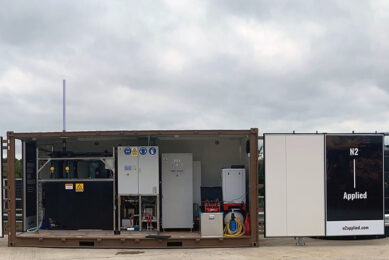
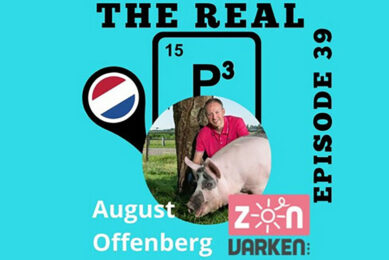
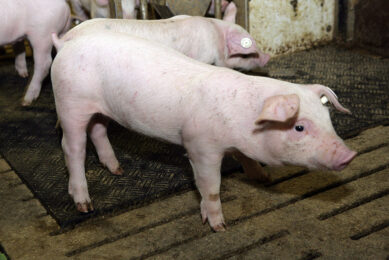
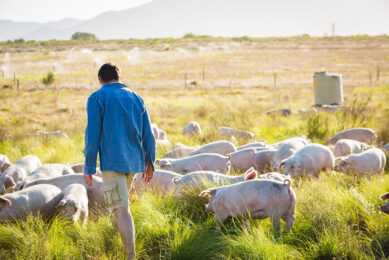





 WP Admin
WP Admin  Bewerk bericht
Bewerk bericht